Our team supports you throughout your hepatitis C treatments.
Discover how we can help you
Receiving a hepatitis C diagnosis can be worrying, but you’re not alone. The Larivière et Massicotte pharmacy team is here to support you through this difficult time, working with your healthcare specialists to ensure the best possible pharmacological treatment. Do not lose hope: hepatitis C treatments are progressing at an incredible pace and research has never been so promising. We’re here to give you peace of mind. You focus on fighting the disease, we’ll take care of the rest.
We’re here to help you.

What is hepatitis C?
Hepatitis C is a viral infection of the liver caused by the hepatitis C virus (HCV). It can appear in both acute and chronic phases. The acute phase usually occurs 2 to 12 weeks after infection, with mild or no symptoms, which makes it difficult to detect. It may still evolve into a chronic phase if the immune system fails to eradicate the virus itself. In the chronic phase, symptoms may also be non-existent. The virus continues to progressively attack the liver, leading to serious complications such as cirrhosis (scarring of the liver) or even liver cancer.
How is hepatitis C diagnosed?
A hepatitis C diagnosis can be made through specific screening and testing procedures that can detect the presence of the hepatitis C virus (HCV) in the blood. The first step is usually to screen the patient’s blood for the presence of antibodies to HCV. A positive result indicates previous exposure to the virus, but does not necessarily imply active infection. If anti-HCV antibodies are detected, a viral load test is performed to measure the level of the virus present in the blood, which will confirm whether the infection is active.
HCV genotyping: The hepatitis C virus has a variety of genotypes, which can impact treatment duration and response. Genotyping profiles are performed to guide the choice of treatment. Assessing the state of the liver is also important in determining the stage of the disease. It is crucial to diagnose HCV as early as possible, so the patient can start appropriate medical treatment as soon as possible. Screening is recommended if you are a person at risk, who injects drugs, has received blood transfusions prior to the introduction of HCV testing, or who has been exposed to unsterilized medical instruments.
What are the symptoms of hepatitis C?
Hepatitis C can appear in either an acute or chronic phase. In the acute phase, symptoms are non-specific, making hepatitis harder to diagnose. These include abdominal pain, unusual fatigue, loss of appetite, nausea, and sometimes dark urine. Although less common, patients can also develop jaundice, which is a yellowing of the skin and eyes. However, some people are asymptomatic at this stage. Patients with chronic hepatitis C may also remain asymptomatic for years, as the virus gradually continues to damage the liver.
The first symptoms may appear at a more advanced stage of the disease, when severe liver damage has already been done, such as persistent fatigue, increased abdominal tenderness, unexplained weight loss, and a tendency to bleed or bruise. The chronic phase can lead to severe complications, including cirrhosis and an increased risk of liver cancer, and can cause symptoms like fluid accumulation in the abdomen, mental confusion, gastrointestinal bleeding, and a yellowish discolouration of the skin.
What are some hepatitis C treatments?
Treatments for the hepatitis C virus have greatly evolved in recent years, improving the chances of a cure and preventing serious complications. The most common treatments are direct-acting antivirals (DAAs), which offer a high cure rate and are usually well tolerated by patients. Treatment duration may vary according to virus genotype and severity of liver disease. After 8 to 12 weeks of treatment, many people achieve sustained virological recovery, making the virus undetectable by the body. However, it’s important to note that even a successful treatment cannot make a person immune to hepatitis. Re-infection with HCV is possible if a person is exposed to the virus again. Early detection of the disease is crucial to treating it before it produces serious and irreparable liver damage.
Our pharmacists are here to answer your questions. Contact us
How can Larivière et Massicotte support you ?
Our mission
Our committed team works hand in hand with community pharmacists, healthcare teams, and various healthcare professionals to support patients with hepatitis C, ensuring the best possible care for them.
Common questions
Should I get tested for hepatitis C?
Screening for hepatitis C is recommended if you’ve been in contact with contaminated blood, use injection drugs, received a blood transfusion or transplant before 1992, lived in an area with a high incidence of hepatitis C, have symptoms of liver infection, or participated in any other high-risk activities. Since hepatitis C can be asymptomatic, early detection is essential for diagnosing the infection. This helps to prevent serious complications and initiate treatment at an early stage of the disease.
How is hepatitis C transmitted?
The hepatitis C virus (HCV) is mainly transmitted through direct contact with infected blood. It is most commonly transmitted by sharing contaminated needles or injection equipment with someone infected with HCV. In the past, blood transfusions could spread the virus, but this is no longer the case thanks to the widespread introduction of HCV tests in blood banks. Non-sterile medical equipment can also be a vector for transmission of the virus, such as certain medical procedures, tattoos, body piercings, pedicures and manicures performed with contaminated equipment.
HCV can also be transmitted through unprotected sexual contact, particularly in the case of bleeding or genital lesions. An HCV-infected mother can also pass the virus on to her baby during childbirth. HCV cannot be spread by coughing, sneezing, shaking hands, sharing food or drink, toilet seats, hugging, kissing, or other common contacts. However, it is important to take precautions to prevent transmission in high-risk situations, notably by using condoms during sexual intercourse and avoiding the sharing of injection equipment.
What can I do to ensure a successful treatment for hepatitis C?
To make sure your hepatitis C treatment is effective, it’s essential that you strictly adhere to it, and don’t forget to take your doses. Consult your pharmacist about any interactions between your medications, diet, natural health products, and HCV medication. We recommend adopting a healthy lifestyle by avoiding alcohol and following a balanced diet every day. Don’t hesitate to seek psychological support if necessary, and remember that open communication with your medical team and a full understanding of your condition are essential for successful management of hepatitis C. It’s important to follow post-treatment medical recommendations and to continue with follow-up examinations.



